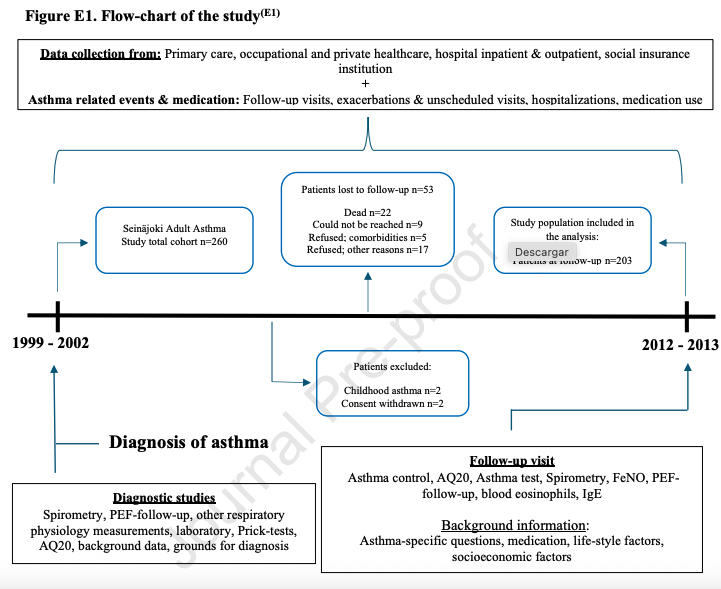
Nordman, Lauri et al. Journal of Allergy and Clinical Immunology: Global, Published online: June 21, 2025
Highlights
- Adult-onset asthma patients have multiple risk factors for asthma exacerbations.
- OCS use and the number of exacerbations increased with the number of risk factors.
- GERD was positively associated with asthma exacerbations.
- The value of identifying a single risk factor may be low.
- Patients with multiple risk factors and/or GERD require special attention.
Abstract
Background
Global Initiative for Asthma (GINA) advises to evaluate risk factors for exacerbations. Patients with adult-onset asthma often have a problematic disease presentation with comorbidities. Very little information exists regarding the prevalence of exacerbation risk factors in adult-onset asthma patients.
Objective
To evaluate the prevalence of exacerbation risk factors listed in GINA Report 2023 and their association with exacerbations in patients with adult-onset asthma.
Methods

In Seinäjoki Adult Asthma Study 203 patients with adult-onset asthma were followed for 12 years. Data was available for 17 of the 21 GINA risk factors. Exacerbation was defined as an unplanned healthcare visit with asthma exacerbation mentioned in the medical health records.
Results
On average, patients had 3.8 asthma exacerbation risk factors: poor adherence (54.7%), chronic rhinosinusitis (54.2%) and smoking (52.7%) being the most common. Four patients (2.0%) had no risk factors. OCS (oral corticosteroid) use and the number of exacerbations increased with the number of risk factors. Exacerbations were positively associated with gastroesophageal reflux disease (GERD) (OR 5.0; 95%CI 1.7-15.1, p=0.004) and age >50 years (OR 2.3; 95%CI 1.1-4.8, p=0.021) in univariate analyses. After adjustments by sex, pack years, and BMI, only GERD remained as a statistically significant risk factor (OR 4.5; 95%CI 1.5-14.0, p=0.009).
Conclusions
Exacerbation risk factors are common in patients with adult-onset asthma, and the value of identifying a single risk factor may be low. Patients with multiple risk factors and/or GERD should be emphasized in clinical practice.
